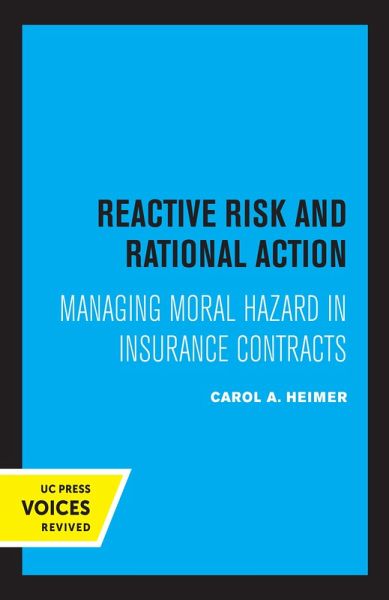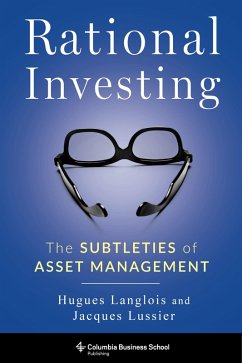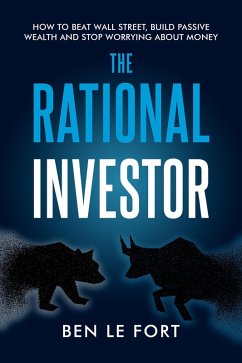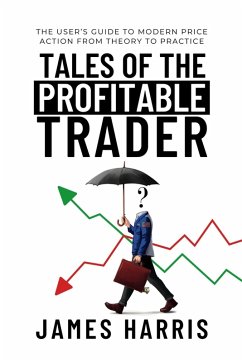
Reactive Risk and Rational Action (eBook, ePUB)
Managing Moral Hazard in Insurance Contracts

PAYBACK Punkte
9 °P sammeln!
Reactive Risk and Rational Action: Managing Moral Hazard in Insurance Contracts offers a sophisticated anatomy of how insurers confront losses that change precisely because insurance exists. Rather than treating pricing as a purely actuarial exercise, the book shows why markets "thin" when incentives shift and why insurers embed hierarchy inside contracts to steady calculation. Beginning with a clear definition of reactive risk-loss probabilities that move in response to policyholder behavior-the author reframes moral hazard as a strategic interaction, not just a pricing nuisance. Core chapter...
Reactive Risk and Rational Action: Managing Moral Hazard in Insurance Contracts offers a sophisticated anatomy of how insurers confront losses that change precisely because insurance exists. Rather than treating pricing as a purely actuarial exercise, the book shows why markets "thin" when incentives shift and why insurers embed hierarchy inside contracts to steady calculation. Beginning with a clear definition of reactive risk-loss probabilities that move in response to policyholder behavior-the author reframes moral hazard as a strategic interaction, not just a pricing nuisance. Core chapters track how institutions convert reactive risks into fixed ones: aligning incentives through deductibles, coinsurance, and experience rating; relocating key safeguards to third parties (building codes, inspection regimes, classification societies); and continuously re-valuing property to preserve indemnity and deter fraud. Through tightly argued case studies-urban fire insurance, risks at sea, and surety bonding-the book ties rating and underwriting practices to real-world constraints like distance from decision makers, information asymmetries, and organizational control. Bridging decision theory and the economics of institutions, the study demonstrates how insurance markets endure only when contracts create a "community of fate" between insurer and insured-making prevention, not just payout, the common objective. Methodological notes on how insurers model individuals and organizations complement analyses of warranties, sue-and-labor clauses, general average, salvage, and valuation rules, revealing why some hazards prove insurable and others do not. The concluding theory of reactive risk connects calculation to governance: when incentives and oversight are designed well, insurers can price rare events without inviting them; when they are not, markets unravel. The enduring takeaway is crisp and consequential: managing moral hazard is less about better odds and more about better institutions-insurance works when contracts strategically reshape behavior so that markets can function at all. This title is part of UC Press's Voices Revived program, which commemorates University of California Press's mission to seek out and cultivate the brightest minds and give them voice, reach, and impact. Drawing on a backlist dating to 1893, Voices Revived makes high-quality, peer-reviewed scholarship accessible once again using print-on-demand technology. This title was originally published in 1985.
Dieser Download kann aus rechtlichen Gründen nur mit Rechnungsadresse in A, D ausgeliefert werden.













